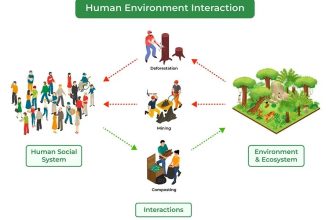At what age can a child choose who they live with? In most states, the legal age is typically around 12-14 years old, but courts prioritize the child’s best interests. Factors such as maturity level and ability to make informed decisions play a crucial role. It’s essential for parents to understand their child’s perspective and involve them in the decision-making process. Ultimately, the age at which a child can choose who they live with varies, emphasizing the importance of considering each unique situation carefully.
At What Age Can a Child Choose Who They Live With
Welcome, young readers, to an important topic that many kids might wonder about: at what age can a child choose who they live with? This is a question that comes up when parents are no longer together, and the child may have a say in where they want to live. Let’s explore this topic together!
Understanding Custody and Legal Rights
When parents decide to separate or get divorced, they need to make arrangements for their children. This usually involves determining custody, which is about where the children will live and who will make decisions for them. In some cases, children may have a say in this decision, but it’s essential to understand how the legal system works when it comes to children’s rights.
Legal Age for Decision-Making
While laws vary from place to place, most countries have guidelines on when a child can have a say in custody arrangements. The age at which a child can choose who they want to live with typically ranges from 12 to 18 years old. However, it’s essential to remember that even if a child’s preference is considered, the final decision is usually made by the court based on what is in the child’s best interest.
Factors Considered by the Court
When a child expresses their preference for who they want to live with, the court takes several factors into consideration before making a decision. These factors include the child’s age, maturity, relationship with each parent, and the child’s reasons for wanting to live with one parent over the other.
Child’s Age and Maturity
Younger children may not have as much influence over custody decisions as older children. This is because older children are more capable of expressing their thoughts and preferences clearly. Courts often consider the maturity level of the child to determine how much weight should be given to their wishes.
Relationship with Each Parent
The quality of the child’s relationship with each parent is crucial in custody decisions. If a child has a stronger bond with one parent or feels more comfortable living with them, the court may take this into account when making a decision.
Reasons for Preference
When a child states their preference for living with one parent, the court will also look at the reasons behind this choice. Valid reasons, such as feeling safer or having a better relationship with one parent, are more likely to be considered than reasons that may seem less important.
Parental Involvement and Communication
It’s important for parents to involve their children in custody discussions and listen to their preferences. Even if a child may not have the final say, their input can help parents and the court understand what is best for the child’s well-being.
Open Communication
Parents should create a safe and open environment for their children to express their feelings about custody arrangements. Listening to children’s concerns and involving them in the decision-making process can help them feel heard and supported.
Putting Children First
Ultimately, the most crucial factor in determining custody is what is in the best interest of the child. Parents should always prioritize their children’s well-being and work together to create a custody arrangement that meets their needs and supports their emotional health.
So, young readers, while the legal age at which a child can choose who they want to live with varies, it’s essential to remember that the well-being of the child is the top priority in custody decisions. If you find yourself in a situation where you have a preference for living with one parent over the other, remember that open communication and honesty are key in expressing your feelings. Your voice matters, and adults involved in custody arrangements should listen to you and consider what is best for you.
Thank you for joining me in exploring this important topic. Remember, your well-being is essential, and adults are here to support and care for you during challenging times. Stay curious and remember that it’s okay to ask questions and seek help when needed!
At What Age Can My Child Choose Where to Live?
Frequently Asked Questions
What factors are considered when determining at what age a child can choose who they live with?
When determining at what age a child can choose who they live with, courts consider various factors such as the child’s maturity level, ability to understand the situation, and the child’s best interests. While there is no specific age set in stone, older children typically have more weight in their preferences being considered.
Can a child choose who they want to live with before they reach a certain age?
Although some jurisdictions may allow children to express their preferences before a certain age, the final decision on custody and living arrangements is usually made by the court based on various factors, including the child’s well-being and best interests.
How can a child express their preference on who they want to live with?
A child can express their preference on who they want to live with by providing their input during court proceedings, through a guardian ad litem, or by speaking to a judge directly. The court will take the child’s opinion into consideration along with other relevant factors when making a decision.
Does the child’s preference guarantee that they will live with the chosen parent?
While the child’s preference is an important factor in custody decisions, it is not the sole determining factor. The court will consider the child’s preference along with other factors such as the child’s well-being, parental capability, and overall best interests before making a final decision.
Final Thoughts
In conclusion, the age at which a child can choose who they live with varies by jurisdiction. While some states consider a child’s preference around 12-14 years old, others prioritize the child’s well-being regardless of age. Ultimately, the court will consider the child’s maturity and best interests when determining custody arrangements. It’s important to understand the laws in your state and seek legal advice regarding this matter. Remember, the decision about ‘at what age can a child choose who they live with’ is complex and involves multiple factors.






